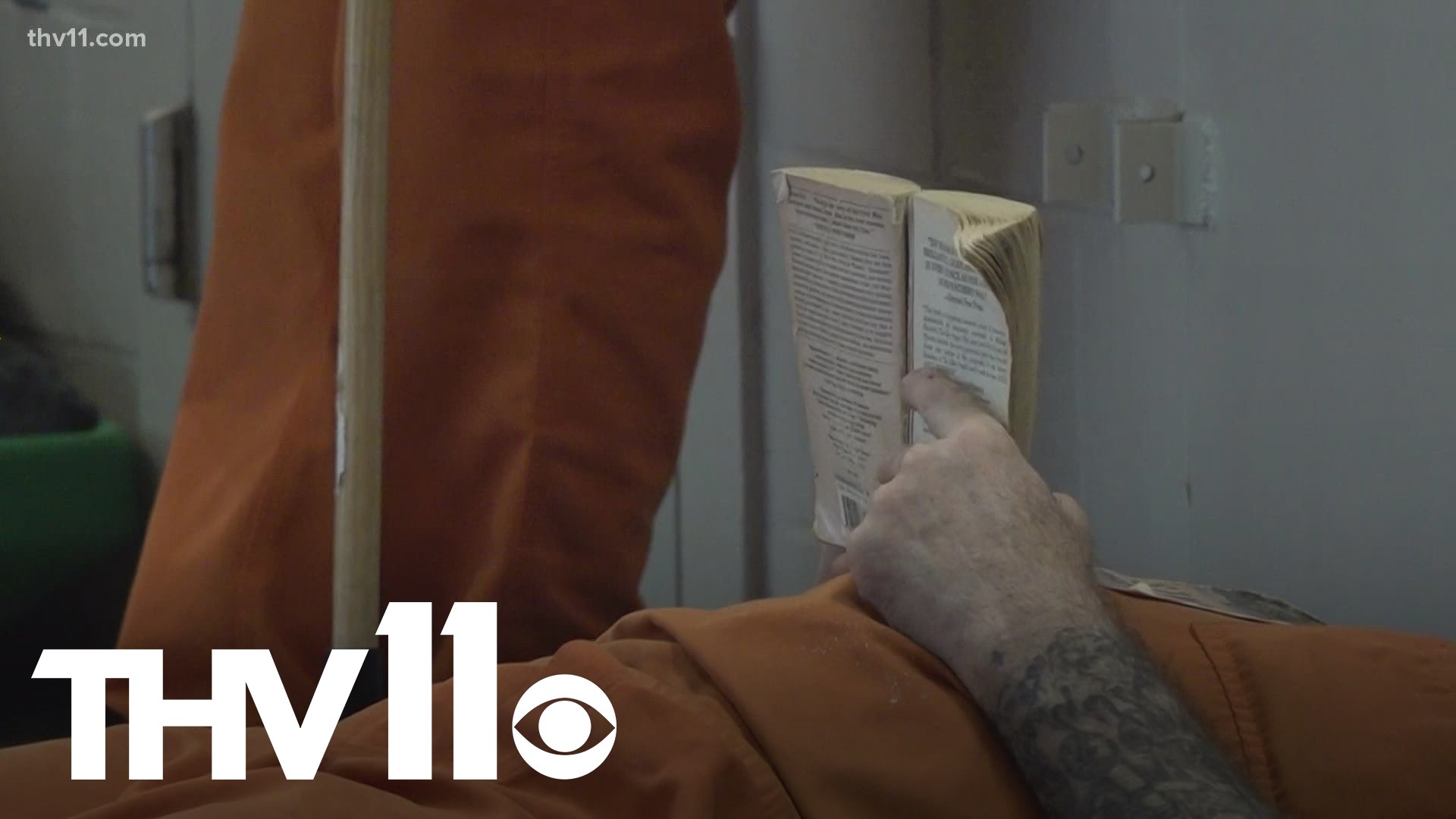LITTLE ROCK, Ark. — Re-entering society is a stressful process for the formally incarcerated due to the lack of assistance.
However, the Pulaski County Detention Facility has a re-entry program that helps those people get back in touch with society.
The program is entering its third year.
"People who are incarcerated, do not have the day-to-day skills necessary to make it on the outside," Director of the Jail Re-entry Program Kathy McConnell said.
When it is time to re-enter the free world, McConnell wants to make sure they are prepared with the necessary resources to be successful.
McConnell said it starts with making sure each inmate interested in the program has a high school diploma or GED.
"If they don't have a GED, I immediately enroll them in a GED class available in the jail," McConnell said.
From there, the students are required to complete 200 hours of classes, which focus on learning life skills, budgeting and parenting. The program has includes a 12-step program.
According to McConnell, many people who are incarcerated also have druge addiction issues. It's a subject that hits home for her as McConnell's youngest son died after a 19-year battle with opioids and eventually Fentanyl.
"Not only does a person with addiction issues go through hell, but so does the family," McConnell said. "So does everyone who loves them."
It's why the program also focuses on keeping up with people after they are released from jail.
"We now can order some housing and we can also offer those who need some inpatient drug rehabilitation along with some job skills," McConnell said.
Currently, the re-entry program is at full capacity with 120 men and women enrolled.
McConnell said the jail is seeing a 17% recidivism rate because of the re-entry efforts. She also said that there's a growing interest in the program among inmates throughout the facility.
"Many people are tired of the same cycle over and over again," McConnel said. "They are anxious to get help."
The program will resume on Jan. 4.
McConnell also said that through a partnership with UAMS, those released can get free medicated assisted treatments for three months.

